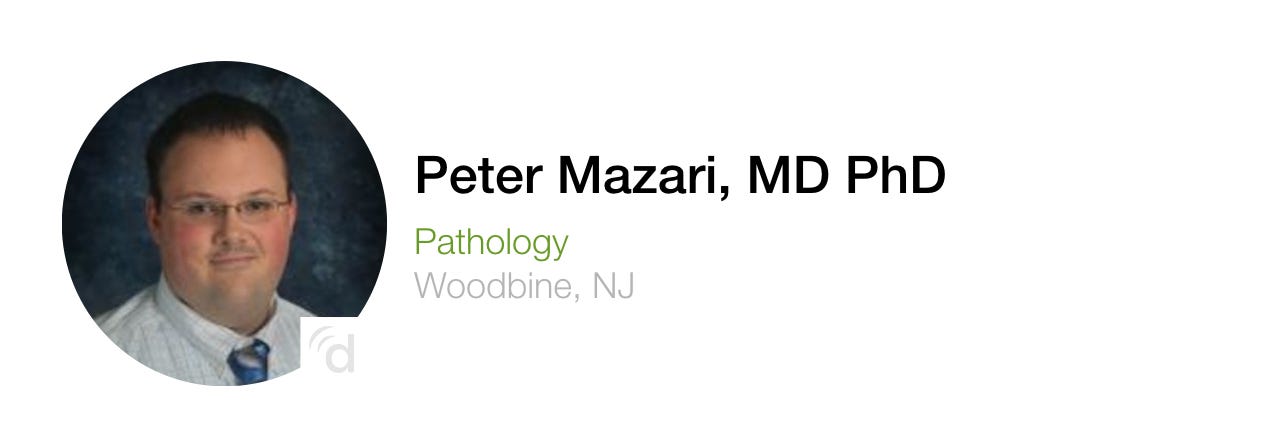
If you’re heading into any career outside of the traditional hospital setting (research, industry or perhaps even forensic pathology), your 3rd year of medical school is going to be a little different than everyone else’s.
Your time on the wards is going to be sprinkled with awkward conversations with attendings who write you off once they realize you aren’t going to be their protégé. Your faculty advisors will frequently have no idea what to do with you. In addition to the actual academic troubles, heading in a different route than the vast majority of your peers can sometimes be a very lonely road.
When you put it all together, hurdles like these tend to drive people away from these already-underrepresented careers. But don’t let it deter you from taking the road less travelled. Many before you have done it and have had fulfilling careers. You just need to follow a few rules…
1. Find a mentor.
This one can pertain to those entering a more-traditional field, also. But, for these fields, the candidates are more apparent and the need for a mentor is perhaps slightly less urgent. In any regard, once you make a decision, or even begin seriously considering a specific career path, find someone who has gone a similar route and ask to speak with them. Chances are you aren’t the first person to go this particular route, no matter how non-traditional it may be.
Also, let’s be honest, you probably didn’t come up with this idea completely on your own. You’ve probably already been exposed to your chosen field and have likely made a contact or two along the way. You don’t necessarily have to find someone who has taken the exact path you intend to take; often, you can just find someone who ended up where you want to end up as well. If you’re a traditional medical student who wants to go into research, industry MD/PhDs, or even PhDs, will likely be loaded with information and suggestions. What’s even more important is that they will help you broaden your contact network.
Sometimes, you don’t even need to be that specific when finding a mentor. When I began looking into forensic pathology I encountered two mentors along the way, neither of whom practiced forensic pathology. One was a pathologist at a community hospital who was eager and willing to bring someone under his wing. While he wasn’t particularly familiar with my future field, he had a wealth of information about pathology, which we both understood needed to be my next step anyway. Once in residency, I crossed paths with a pulmonary pathologist who also ran the autopsy service at my training institution. She also was not a forensic pathologist, but she knew plenty of them and had gotten other trainees into excellent fellowships. By the time I left residency, I knew a few dozen medical examiners in my region, had gotten my residency program to pay for me to go to the National Association of Medical Examiners annual meeting, and had an abstract accepted at the meeting, all through indirect contacts.
I trained with co-residents interested in everything from informatics to medical writing, and all of them ended up where they wanted by finding that one person who could point them in the right direction, or who would introduce them to the right people.
The key is to find mentors as early as possible and stay connected to them, even when clerkships are taking you in other directions. Once you’ve got the right people on your side, the rest will come.
That being said, you still need to survive the rest of medical school, and possibly residency too. That’s where the rest comes in.
2. Own your decision.
Many of the people you work with, attendings and others, won’t fully understand your decision. So rather than explain yourself for the umpteenth time, you may just say what you think they want to hear. For example, when you tell the surgical attending whom you’re shadowing for your 3rd year clerkship that you want to be a medical examiner, and they spend the next six weeks misquoting the infamous joke… (“Internists know everything but do nothing / Surgeons do everything but know nothing / Pathologists know everything and do everything but are too late”) …you may think twice about telling the next attending your real plans.
Likewise, when you suggest that you’re interested in a research career and you get responses like, “We all do research… what kind of medicine to you want to practice,” or when you say you want to go into hospital administration someone launches into complaints about their own administrators “in their ivory tower,” you may decide to just tell the next attending that you want to do whatever it is that they do, just to avoid the whole conversation altogether. Don’t do that. Stand behind your decision, be proud of it, and know that most of the awkwardness stems from misguided impressions on behalf the other party and is probably not intended to be mean spirited.
More importantly, remember that you made this decision for good reasons: be they altruistic, financial, intellectual curiosity, or just the spirit of adventure. Displaying pride in your decision will earn the respect of those who you share it with, even if they mask it with corny jokes or awkward conversation.
3. Find a buddy.
Survival in medical school requires companionship. Knowing that the person next to you is going through the same challenges and having them to lean on (and vice versa) makes the insurmountable surmountable. When you choose to go a different route than more-than 95% of your peers, you can feel a little bit ostracized. Suddenly, your experiences are no longer the same. Suddenly, you can’t relate as closely as you once did. Depending on where you’re headed next, you may not be entering the Match. You may not be scrambling for the highest marks because you aren’t competing for a limited number of slots. Instead, you’re being weighed down with different burdens, and it may seem like they are unique to you. Alas, they are not unique to you. Seek out those who you know are also seeking non-traditional medical careers. Your experiences will be different, but you may be facing some surprisingly similar obstacles.
Beyond that, most medical students are often remarkably empathetic. That’s part of what got them interested in the field in the first place. Don’t be afraid to share your struggles with your colleagues; just because they aren’t going through the exact same situation doesn’t mean you need to internalize everything. While your troubles may seem different on the surface, they’re all the same at the core. You’re all struggling to figure out how to navigate through this long, expensive, arduous process called medical school. And you’re all trying to make the right decision about what to do next. Stress is stress, and you’re all dealing with a boatload of it.
4. Take advantage of the experience.
Once you’ve decided on a career path that’s not going to have you on the wards or in the OR, it’s very easy to think that you no longer need clinical medicine. You may become even more frustrated with scut work than before, and if you aren’t trying to match, maybe grades aren’t as important as they once were. Don’t lose sight of the fact that you are in a truly amazing environment. You are surrounded by patients experiencing some of the strongest positive and negative emotions of their lives, and you are an integral part in their experience. If you aren’t going to practice clinical medicine, this may be your last opportunity to do so and to see the art of medicine on display.
Wherever the wind may take you next, you likely went into medical school with this in mind. Enjoy it. Stay involved and soak up as much information and experience as you possibly can. While the MUDPILES pneumonic may not help you when you’re writing your RO1 grant proposal, the time you spend on the wards will provide you with a deeper understanding of the needs and limitations of clinical medicine, which more researchers, administrators, and industry leaders need to comprehend. You likely won’t be leaving the medicine arena altogether, so the more you know about what’s happening on the center stage, the better.
That’s really it! There isn’t a magic formula to career decisions. Find the right people to help you along the way, be proud of your decisions, and enjoy the ride. The rest will come, even if it doesn’t always seem that way.

Peter Mazari, MD, PhD is a former research track MD/PhD who trained at Robert Wood Johnson Medical School and the Hospital of the University of PA who now practices full time as a Forensic Pathologist and part time as adjunct anatomy and physiology professor in Southern NJ. He has no conflicts of interest to declare.







